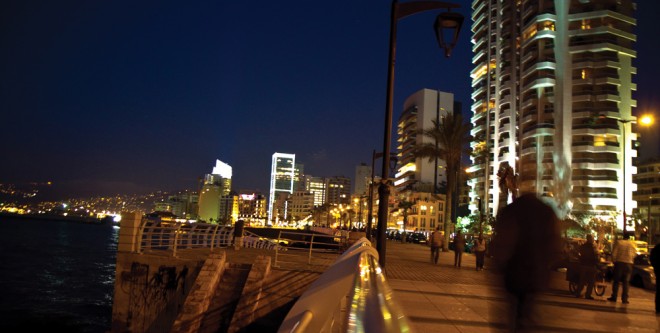In the Arms of the SPI Family

Life in Beirut can be an endless, grinding stress, and to compensate, Rami Shamma (SPI ’08) used to find himself constantly fidgeting with things and shaking his leg. Soon after his arrival on EMU’s campus, though, he noticed a change.
“The atmosphere that is present in Harrisonburg, and in particular at EMU, is one of the safest environments I’ve ever seen in my entire life, in terms of security and in terms of feeling comfortable,” he says. “I felt that there was no stress, and I noticed that my leg wasn’t shaking anymore.”
Shamma says he was amazed and inspired by the way participants at his session of the Summer Peacebuilding Institute (SPI) got along so well despite all the differences between them. Attending SPI, Shamma adds, dramatically improved the way he has interacted with people at home ever since.
Fadi Rabieh, MA ’08, spent a significantly longer time at EMU while going through the two-year master’s program but came away with a similar impression of the atmosphere there – calling it, quite simply, the most peaceful place he’s ever experienced.
His time there, he says, had a profound impact on his worldview, and the relationships he developed were very strong.
“It’s literally like another home. It’s like a family,” Rabieh says.
SPI co-director Bill Goldberg, MA ’01, often hears from participants who are reluctant to leave Harrisonburg, where, in addition to intensive academic study, they have opportunity for respite and are able to recharge themselves away from their often-stressful careers and lives at home.
“There has always been a very conscious attempt to make people feel relaxed,” Goldberg says.
Beginning with meeting arrivals at airports, he, co-director Valerie Helbert, MA ’08, and the rest of the SPI staff try to ensure participants’ arrivals go smoothly. Welcoming events on the first day of each session are intended to create a sense of connection among everyone. Throughout SPI, coffee breaks and two-hour lunches each day are also structured to encourage social interaction. Other activities planned to create a restful, nurturing environment include hikes, yoga, zumba, trips to different places of worship, and interfaith discussions led by the SPI chaplain.
That spiritual aspect of SPI was one of the characteristics Emil El Dik (SPI ’99 & ’00) appreciated most about the experience.
“The atmosphere at SPI is really very warm and helpful. It’s very spiritual. You don’t just learn from the professors. The whole context is rich,” says El Dik, a trainer in peacebuilding, conflict transformation and mediation in Amman, Jordan.
With so many participants coming from a multitude of backgrounds and perspectives, El Dik says the gentle environment that exists at SPI allows classes to transcend cold methodology. Students, he continues, feel encouraged to be authentic and creative – all of which are important for successful peacebuilding and conflict resolution.
“It’s not just about knowledge, theories. It’s about transforming people,” he says. “Everyone there was touched by what we studied. We were transformed.” — AKJ
SPI 2013 will be held May 6-June 14, 2013. Courses will be announced in late October on the SPI website, www.edu.edu/spi.